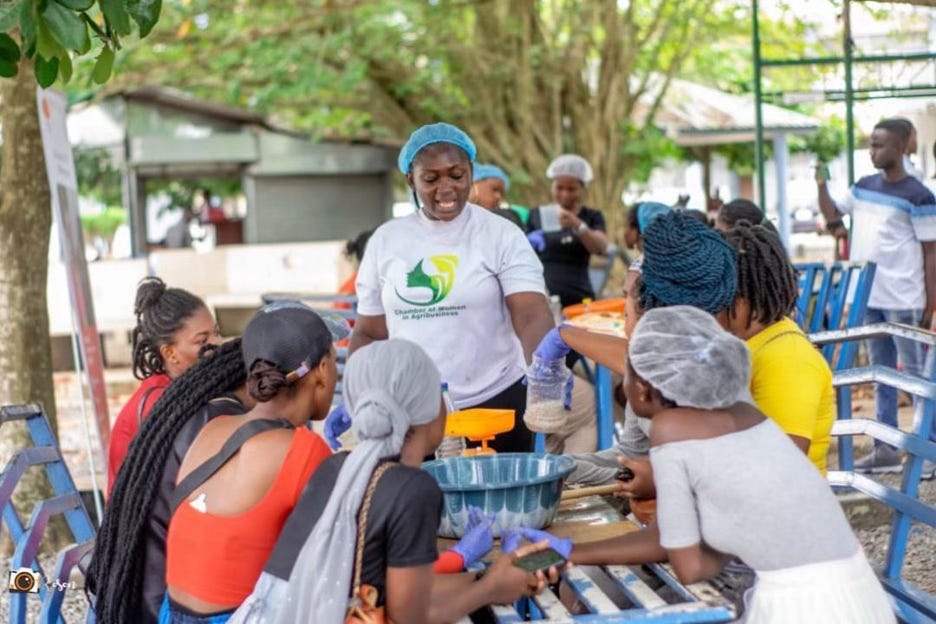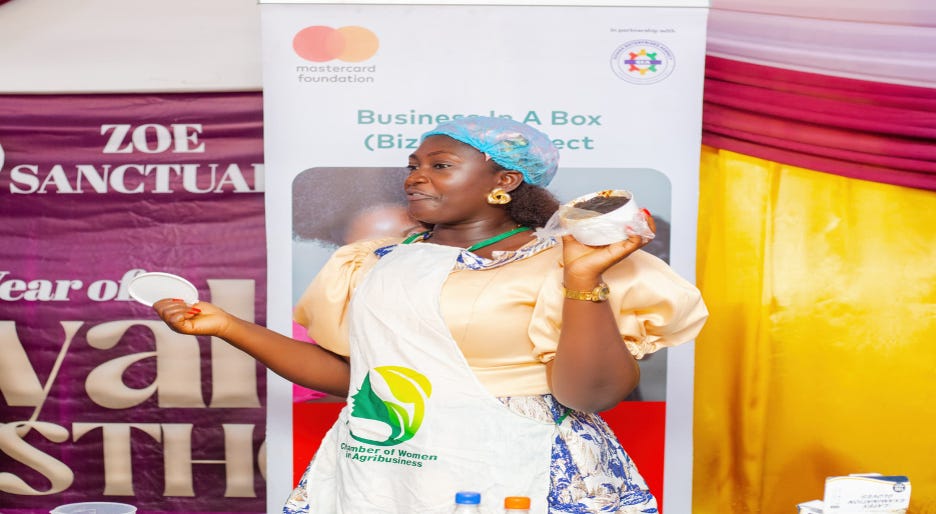Bottom-Up Innovation to Boost Ghanaian Entrepreneurship
“These systems were built by people who don’t care about us. That’s why bottom-up innovation works better.” – Mim Plavin-Masterman
Plavin-Masterman's powerful statement, shared during a thought-provoking episode of the What If Instead? podcast, is deeply relevant to Ghana's entrepreneurial landscape.
As a lecturer and SME industry mentor at the University of Professional Studies in Accra, I have committed my career to instilling the entrepreneurial spirit in students and formal/informal-sector business owners. My job focuses on assisting people in developing, launching, and growing their businesses in an environment that frequently appears oblivious to their requirements. Plavin-Masterman's statements encapsulate why grassroots, community-driven innovation is not only an option, but a requirement for improving lives and economies in Ghana.
Ghana's entrepreneurship ecosystem is thriving yet riddled with obstacles. Entrepreneurs, particularly those in the informal sector, confront systemic impediments that can hinder their dreams, including intermittent power supply, known locally as dumsor, and limited access to capital and markets. These mechanisms, as Plavin-Masterman correctly points out, were not developed with the local entrepreneur in mind. They frequently reflect priorities established by distant authorities or global institutions that do not consider our communities' particular realities. However, it is precisely within this gap that bottom-up innovation thrives, providing practical, locally relevant solutions that empower citizens and create long-term economic success. This gap and the criticality of local solutions are explored further in Plavin-Masterman’s upcoming book One Size Fits None: Time for an Entrepreneurial Revolution, co-written with Alejandro Juárez Crawford. The book challenges us to make it normal, when facing broken systems, to launch experiments to address them – no matter who we are or where we live.
The Power of Bottom-Up Innovation
Bottom-up innovation focuses on solutions developed by individuals who live with the problems daily. It is about using local knowledge, resources, and ingenuity to solve problems in ways that top-down systems cannot. In my work at the University of Professional Studies, I see this principle manifested in the stories of students and entrepreneurs who refuse to be defined by their surroundings. They are creating firms that not only solve current problems, but also encourage people to rethink what is possible.

Esther Kyerewaa (SkinVive Ghana), a dynamic Ghanaian businesswoman whom I have had the honor of mentoring, has transformed a worldwide crisis into a thriving opportunity! During the COVID-19 epidemic, with businesses closed, Esther lit a spark of ingenuity by creating organic soaps brimming with local flavors such as cinnamon, bay leaf, zesty lemon, and chocolate mint. What began as a little initiative to provide her neighborhood with necessary hand sanitizers and soaps has grown into a thriving business. Esther's enterprise has significantly impacted communities across the Eastern, Central, and Greater Accra Regions, empowering over 1,500 women through comprehensive training programs. Her business now produces thousands of high-quality soap bars and related accessories weekly. Esther’s journey exemplifies the strength of grassroots innovation, demonstrating how identifying a local need, utilizing regional resources, and developing effective solutions can create sustainable, community-driven impact.

Fostering an Entrepreneurial Mindset
As Coordinator of the MBA Impact Entrepreneurship and Innovation Program at the University of Professional Studies, I am responsible for instilling an entrepreneurial mindset in students. This mindset is about more than just starting a business; it's about recognizing obstacles as opportunities, challenging the status quo, and acting to effect change. Plavin-Masterman's observation demonstrates why this perspective is so important: when systems fail to serve us, we must create our own answers.
When systems fail to serve us, we must create our own answers.
Our curriculum focuses on practical, hands-on learning. Students are encouraged to identify community challenges, such as waste management, healthcare access, or digital inclusion, and come up with inventive solutions.
Overcoming Systemic Challenges
Plavin-Masterman’s observation aptly reflects how structural challenges impact Ghana's entrepreneurship ecosystem. For example, a software development company I mentored had to invest in a generator to keep operations running during outages, which reduced its profitability. These issues illustrate what happens when existing mechanisms were not developed with the local entrepreneur in mind. However, bottom-up innovation provides a path ahead. By focusing on local solutions, entrepreneurs might avoid some of these obstacles. As a response to dumsor, Ghanaian startups are increasingly embracing solar-powered technologies. This type of invention, driven by necessity and rooted in local conditions, exemplifies why grassroots approaches are more effective than imported solutions.
Building a Ghanaian Entrepreneurial Culture
Plavin-Masterman's call for bottom-up innovation inspires a larger vision: creating a distinct Ghanaian entrepreneurial culture. In many parts of the world, family enterprises are the foundation of economic development. However, in Ghana, the informal sector dominates, and many entrepreneurs are hesitant to expand for fear of rising costs or regulatory hassles. Our MBA program aims to overcome this hesitancy by demonstrating that progress is not only feasible, but also necessary for long-term success.
The Way Forward
Mim Plavin-Masterman's words remind us that when systems fail to prioritize people's needs, it’s up to individuals to innovate. In Ghana, this entails supporting entrepreneurs to build solutions that reflect their circumstances, such as converting coconut husks into packaging, manufacturing organic soaps, or inventing solar-powered devices. As a lecturer and coach, my goal is to provide students and informal entrepreneurs with the necessary skills, mindset, and resources to drive this shift. The future of Ghana's economy lies in the hands of its entrepreneurs. By encouraging bottom-up innovation, we can establish a system that actually cares about us, one that celebrates local ingenuity, provides jobs, and improves neighborhoods.



